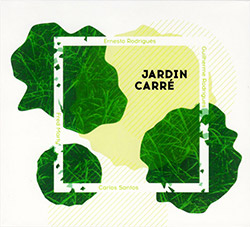
French double bassist Fred Marty joins Creative Sources core performers, violist Ernesto Rodrigues, cellist Guilherme Rodrigues and electronic artist Carlos Santos for an extensive improvisation exploring both lyrical and pointillistic improvisation, themed loosely around a garden quartet or frame, the music detailed, active and formidably sophisticated.
In Stock
Quantity in Basket: None
Log In to use our Wish List
Shipping Weight: 3.00 units
EU & UK Customers:
Discogs.com can handle your VAT payments
So please order through Discogs
Sample The Album:
Ernesto Rodrigues-viola
Guilherme Rodrigues-cello
Fred Marty-double bass
Carlos Santos-electronics
Click an artist name above to see in-stock items for that artist.
UPC: 5609063405330
Label: Creative Sources
Catalog ID: cs533
Squidco Product Code: 26193
Format: CD
Condition: New
Released: 2018
Country: Portugal
Packaging: Cardboard Gatefold
Recorded live at Tiasci, in Paris, France, on March 21st, 2018, by Carlos Santos.
"One thing I've wanted to accomplish here is to articulate my actual opinions and preferences on music, and not to be bound by notions of what I "should" think, whether generated by outside influences, (often legitimate) thoughts on fairness, etc. Such a line (of demarcation) is not always especially clear, since notions of "should" definitely infiltrate my choices of what to hear... which I think is fine (and largely unavoidable)... and that does in turn affect my choices of what to discuss, but I don't believe that it would actually be "fair" (knowingly) to ignore releases that I do appreciate: It's a matter of honest feedback (a notion which, of course, can go on to be even more fraught than this brief summary suggests) for everyone.
So my perspective is that Ernesto Rodrigues is really on a roll right now, and is releasing major album after major album, intelligent and compelling interrogations of various sound worlds and musical relations, involving a wide variety of musicians in different combinations... or perhaps it's more a matter of when I came to his style, and my focus on his latest output is actually belated or otherwise askew. I can't really respond to such a suggestion, but I do want to acknowledge that my focus on Creative Sources releases may seem out of proportion... in a world of "should" anyway. That said - although a series like the Lisbon String Trio is an exception, but do note that it's also relatively traditional within Rodrigues's output - I'm trying to take the albums individually, one at a time, and create specific entries for those that prompt them.
Close on the heels of the latest Lisbon String Trio releases and discussion, Jardin Carré is such an album, so a few more remarks: I had already noted Jardin Carré as an example of a stark or classic cover on Creative Sources - rather than collage or DIY (or, although with overlap, geometry) - and it was indeed recorded about three weeks after From Faust, in March in Paris: It's a single track of more than a half hour, with French double bassist Fred Marty joining Ernesto and Guilherme Rodrigues to form another string trio, supported by Carlos Santos (who also did the covers) on electronics.
As the square on the cover (and reflected in the title) might imply, Jardin Carré suggests a kind of framing, i.e. a musical view from a distance - so suggests, perhaps, a consideration of ocularcentrism quite unlike on Theia - and in turn objects (per se) at a distance (rather than immanent or embedded). Such a perspective tends to revolve around Marty (b.1970) on bass: Although I wasn't previously familiar with him, Marty has an earlier duo album on Creative Sources, as well as with Jean-Marc Foussat. His style reminds me a bit of Pascal Niggenkemper, absent the sudden resonance shifts, but with a kind of rumbling and buzzing main line (that suggests for me Niggenkemper's participation on e.g. Lignes De Cretes - another album of vistas, as discussed here in February 2017, albeit very different in so many other ways - with Jean-Brice Godet).
Indeed, Jardin Carré is very potent at times, sometimes evoking a Scelsian vibe, and in fact the buzzing bass might be attributable to Uitti/Scelsi-style string mutes or vibrators. There is often a kind of gritty or grinding quality as a result, one the other strings sometimes share (and which the bass does not always adopt), such that the "grain" of the string tone itself becomes an important musical object. (The buzz might also be compared, at times, and despite a generally busier musical surface, to that of the rudra veena - a string bass, albeit not bowed - or more simply to the tanpura: Both are fitted with metal strips or brackets to bounce against the strings and proliferate high harmonics.) One might compare the ensemble itself to that on 0 minutes and 0 seconds, where Ernesto and Guilherme Rodrigues are joined by a bassist and electronics artist: The latter is more formal and inward looking, as noted in June, unfolding between smoothness and segmentation. And there, the electronics are "oscillators," focusing on clear tones, whereas the use of electronics on Jardin Carré is rather more subtle: There are some high electronic tones at times, although these might be inflections of string harmonics, just as some "bend" is added to the bass at times.
Usually, electronics are not noticeable, however, such that - as on Boulez Materialism, as discussed earlier this week - they appear to be involved largely in mixing and perhaps looping. (The latter is hard to judge.) Is the focus on grit and grain enabled by real-time electronics? I'm not sure, but in any case, the subtlety of the electronics - and one might not notice them at all - adds to the mysterious emergent aura of the album. Whereas such a discussion might suggest a "single tone" emphasis, and there are indeed some rather minimal episodes, particularly later in the album, there is also quite a bit of polyphony, and not all of it's noisy: There are sometimes long lines from all three strings, sometimes even lyrical in a nineteenth century sense (especially from the viola), although generally embedded in a gritty atmosphere. (The resonant alignments of the string trio on Jardin Carré might then be compared to those on Proletariat, although the latter is probably more about harmonic verticality, and definitely more about "straight" string technique.) There is a further emphasis on continuity in general, pace the quieter episodes, particularly as the remainder of the quartet might "contract" to accent or ornament a central bass line.
Although there can be a feeling of sameness or circularity at times as a result, and sometimes a preliminary quality, I've found Jardin Carré to be quite engaging, particularly as a contrast with other music: I had originally parsed it as little more than an appendix to the Lisbon String Trio series (being a string trio plus another musician, after all), but it's taken on a life of its own, reliably leaving me listening calmly to the sounds or silence around me after it ends.... Moreover (perhaps with 0 minutes and 0 seconds providing a sense of reinvigoration), there appear to be a number of new albums on the horizon to feature Ernesto and Guilherme Rodrigues in trios or quartets with other string players, etc. (Not that this or similar combos are new, but there seems to be a renewed energy....) These would also appear to involve more radical concepts than the Lisbon String Trio series, so once again, we seem to be in the midst of a notable creative outpouring: If 0 minutes and 0 seconds and Jardin Carré are an indication, it'll involve more reworking of musical affectivity (i.e. relation) per se."-Todd McComb, Jazz Thoughts
Get additional information at Todd McComb's Jazz Thoughts
Artist Biographies
• Show Bio for Ernesto Rodrigues "He has been playing the violin for 30 years and in that time has played all genres of music ranging from contemporary music to free jazz and improvised music, live and in the studio. His main interest shifted towards contemporary improvised and composed music. The relationship with his instruments is focused in sonic and textural elements. Electronic music was an early influence on his approach to violin playing, which challenges traditional romantic concepts of the violin/viola through use of preparations and micro tuning. Active in different settings on the Portuguese scene for free improvised music, both as a collaborator and in leading his own groups. Music for Dance, Cinema, Video and Performance. Has created the record label Creative Sources Recordings in 1999, which mainly concentrates on releasing experimental and electro-acoustic music." ^ Hide Bio for Ernesto Rodrigues • Show Bio for Guilherme Rodrigues "Was born 1988 in Lisboa, Portugal and started playing cello and trumpet at Orquestra Metropolitana de Lisboa at the age of 7. In 1999 joined Conservatório Nacional de Música de Lisboa to study classical and music theory and in the current year recorded his first album - Multiples - with Ernesto Rodrigues and José Oliveira out on Creative Sources Recordings. Apart from work in music ensembles ranging for contemporary classical to free improvisation, also works with live music poetry, theatre and film-music. After lengthy residency in Lisboa, (1988-2016) moved to Berlin and has been active as composer and improviser in the scene. Worked with some international and renewed artists like Ernesto Rodrigues, Jean-luc Guionnet, Margarida Garcia, Manuel Mota, Alfredo Costa Monteiro, Sei Miguel, Tim Goldie, Jeffrey Morgan, Oren Marshall, Gerhard Uebele, Klaus Kurvers, Gabriel Paiuk, Nicolas Field, Jaime Fennelly, Blaise Siwula, Will Guthrie, Pawel Grabowski, Michael Thieke, Wade Matthews, Leonel Kaplan, Diego Chamy, Gabriel Paiuk, Barry Weisblat, Joe Giardullo, Jassem Hindi, Tisha Mukarji, Masahiko Okura, Taku Unami, Toshihiro Koike, Sharif Sehnaoui, Christine Abdelnour, Alexandre Bellenger, Carlos Zingaro, Romaric Sobac, Nuno Rebelo, Nuno Torres, Naoto Yamagashi, Heddy Boubaker, Gerhard Uebele, Guillermo Torres, Tomas Gris, Carlos Santos, Bruno Parrinha, Miguel Leiria Pereira, Miguel Ivo Cruz, Alberto Cirera, Nuno Morão, Mark Sanders, Dennis Gonzaléz, Alípio Carvalho Neto, Raymond Macdonald, Neil Davidson, David Stachenas, Lisa Ullén, D'incise, Cyril Bondy, Miguel Mira, Rodrigo Amado, Abdul Moimême, Monsieur Trinité, João Madeira, Álvaro Rosso, Gil Gonçalves, Marian Yanchyk, Filipe Passos, Rodrigo Pinheiro, Christian Wolfarth, Thanos Chrysakis, Bechir Saade, Kurt Liedwart, Miguel A. Garcia, Ilia Belorukov, Andrew Lafkas, Gao Jiafeng, Eric Wong, Johan Moir, Casey Moir, Magda Mayas, Matthias Muller, Alexander Frangenheim ... Has performed and toured in all Europe. Released more than 30 albums of his own projects." ^ Hide Bio for Guilherme Rodrigues • Show Bio for Fred Marty "Fred Marty was born in Blaye (Gironde) in 1970. After studying classical bass studies, he devoted his work to improvisation and experimentation of various game modes on bass. He strives to develop a personal language, inspired by everyday sounds, making some forget the bass itself (distorted sounds, harmonics "gaps" in incomplete or misleading spectrum percussion sounds without specific height, sounds The rubbing of the fingers or the hand on the body of the double bass). He also modifies the timbre by inserting between ropes of wooden or metal rods. Each part of the body of the double bass becomes an instrument of its own. Thus, co-creation he also collaborated in multidisciplinary projects combining dance, music, and video playback, including Anne Ropers collective recidiva in UNICA, a project calling itself "night moves" around the collection of poems of the same Title of Henri Michaux, or with Bérengère Altieri-Leca in the duo OKAMI. Fred Marty has played with Yuko Oshima, Ai Watanabe, Birgitte Lyregaard, Yoko Arai, Frederic Blondy, Edward Perraud, Itaru Oki, Claude Speaks, Xavier Lopez, Michel Doneda Sebastien Bouhana, Marcos Fernandes, Usui Yasuhiro, Alvise Sinivia Michael Nick, Daunik Lazro, Isabelle Duthoit, Benoit Cancoin, Matsumoto Kenichi, Jean Marc Foussat, Yoko Arai, Eric Dambrin John Cuny, Jean Brice Godet, Alexandre Bellenger, Nush Werchowska Mathieu Garrouste Pascal Marzan, Cyprien Busolini, Nicolas Souchal, Deborah Walker, Patricia Bosshard, Jean-Marc Foussat, Yoko Miura, Francesco Pastacaldi Richard Comte, Hideo Ikegami, Ugo Boscain and works with dancers of butoh Gyouhei Zaitsu, Maki Watanabe and dancer Bérengère Altieri-Leca. Since 2012 he is a member of ONCEIM, an orchestra conducted by Frédéric Blondy." ^ Hide Bio for Fred Marty • Show Bio for Carlos Santos "Studied painting with António Sena (Ar.Co, 1988 -1992), worked in advertising for a period of time, but nowadays works as graphic designer in corporate identity, packaging, web and audio-video production. Started sound/music activities in 1989 when formed the VITRIOL project with Paulo Raposo, a laboratory for experimental sound actions, in a first stage with studio work followed in 1994 by live output, mainly live electronics, concrete music with a improvised or graphic score oriented approach. Uses the laptop with software written in MaxMsp, small resonant objects, microphones and piezo elements to produce a music that deals with space and its sound characteristics. Interests in "soundscape" and field recordings are a huge part of his work, for piece preparation or just for archival purposes, Always recording, events, spaces or music. Multi-channel acusmatic music and radio pieces. Presents himself solo in site-specific audio-video works, or in duos with João Silva (video, sound, photography), "Inhabitaded Spaces" with Ricardo Guerreiro (computer, mics), "Venús Pistolletto" with Emídio Buchinho (elec. guitar, mics, objects) and trios with Ernesto Rodrigues (violin) and Guilherme Rodrigues (cello) or ZNGR electroacustic trio with Carlos "Zíngaro and Emídio Buchinho. Member of several formations, "(Des)Integração" laptop ensemble (2001-2003) or in more electroacoustic sets, uses live-electronics and sampling which is the case of "Suspensão" septep, VGO, variable geometry orchestra and specially a trio close related to the "near silence" aesthetics, with Ernesto Rodrigues (violin, harp) and Guilherme Rodrigues (cello) with already several CD releases, always with at least one international improviser guest. Presented his work in Portugal, Spain, France, UK and Germany. Worked with artists from several media: dance, performance and video. Music and sound design for video and animation. Video and sound editing for comercial projects. Played live or in recording projects throughout the years with a lot of musician and sound artists. His sound work is documented in several CD releases. Belongs to the Granular board of directors, a portuguese association for experimental art and does the image of Creative Sources label. Broadcasts "Boca Doce" show at Rádio Zero (web) and other special shows. Workshops and seminars in digital audio manipulation, Maxmsp programming and sound art practise." ^ Hide Bio for Carlos Santos
7/1/2025
Have a better biography or biography source? Please Contact Us so that we can update this biography.
7/1/2025
Have a better biography or biography source? Please Contact Us so that we can update this biography.
7/1/2025
Have a better biography or biography source? Please Contact Us so that we can update this biography.
7/1/2025
Have a better biography or biography source? Please Contact Us so that we can update this biography.
Track Listing:
1. Jardin Carre 36:51
Carbon7 Records
Improvised Music
Free Improvisation
Electro-Acoustic
Electro-Acoustic Improv
lowercase, reductionist, micro-improv, sound improv, onkyo sound
Quartet Recordings
European Improvisation, Composition and Experimental Forms
Search for other titles on the label:
Creative Sources.


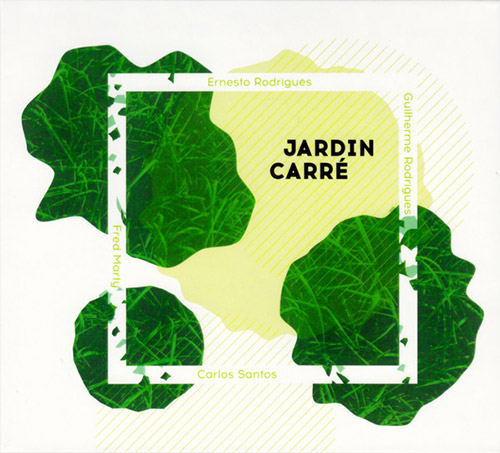



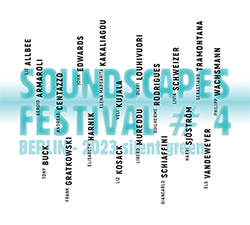



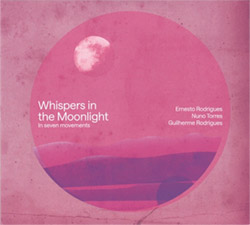



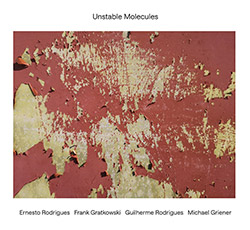





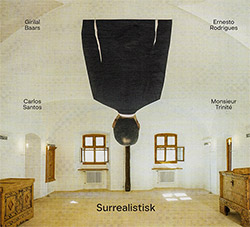
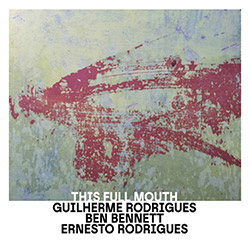
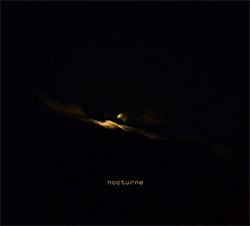
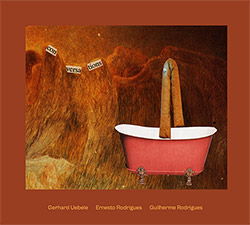
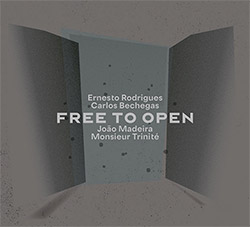
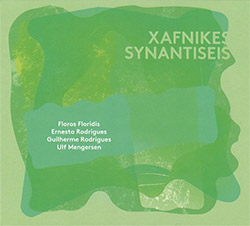
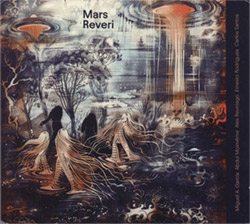
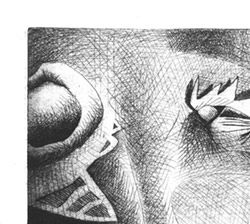
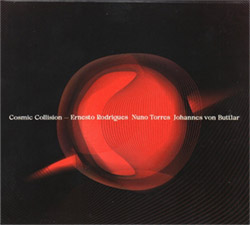










![Deupree, Jerome / Sylvie Courvoisier / Lester St. Louis / Joe Morris: Canyon [2 CDs]](https://www.teuthida.com/productImages/misc4/36404.jpg)


![Eternities: Rides Again [CASSETTE]](https://www.teuthida.com/productImages/misc4/36247.jpg)

![Lopez, Francisco: Untitled (2021-2022) [2 CDs]](https://www.teuthida.com/productImages/misc4/36438.jpg)




![Eventless Plot | Haarvol: The Subliminal Paths [CASSETTE + DOWNLOAD]](https://www.teuthida.com/productImages/misc4/36232.jpg)











![Eventless Plot | Francesco Covarino: Methexis [CASSETTE + DOWNLOAD]](https://www.teuthida.com/productImages/misc4/36231.jpg)


![Das B (Mazen Kerbaj / Mike Majkowski / Magda Mayas / Tony Buck): Love [VINYL]](https://www.teuthida.com/productImages/misc4/36329.jpg)



![Hemphill Stringtet, The: Plays the Music of Julius Hemphill [VINYL]](https://www.teuthida.com/productImages/misc4/36409.jpg)



![Halvorson, Mary Septet: Illusionary Sea [2 LPS]](https://www.teuthida.com/productImages/misc4/17952.jpg)






![Money : Money 2 [2 CDs]](https://www.teuthida.com/productImages/misc4/35894.jpg)




![Klinga, Erik: Elusive Shimmer [VINYL]](https://www.teuthida.com/productImages/misc4/36258.jpg)
![CHANGES TO blind (Phil Zampino): Volume 9 - I Wave on a Fine Vile Mist [CD + DOWNLOAD]](https://www.teuthida.com/productImages/misc4/36061.jpg)

![Wallmart / Rubbish: Asset Protection [split CD]](https://www.teuthida.com/productImages/misc4/35900.jpg)


![+Dog+: The Family Music Book Vol. 5 [2 CDs]](https://www.teuthida.com/productImages/misc4/35897.jpg)
![Kuvveti, Deli : Kuslar Soyledi [CASSETTE w/ DOWNLOAD]](https://www.teuthida.com/productImages/misc4/36107.jpg)

![Nakayama, Tetsuya: Edo Wan [CASSETTE w/ DOWNLOAD]](https://www.teuthida.com/productImages/misc4/36105.jpg)




![Yiyuan, Liang / Li Daiguo: Sonic Talismans [VINYL]](https://www.teuthida.com/productImages/misc4/35957.jpg)
![Brown, Dan / Dan Reynolds: Live At The Grange Hall [unauthorized][CASSETTE]](https://www.teuthida.com/productImages/misc4/36245.jpg)








![Palestine, Charlemagne / Seppe Gebruers: Beyondddddd The Notessssss [VINYL]](https://www.teuthida.com/productImages/misc4/36206.jpg)
![Palestine, Charlemagne / Seppe Gebruers: Beyondddddd The Notessssss [NEON GREEN VINYL]](https://www.teuthida.com/productImages/misc4/36207.jpg)

![Laubrock, Ingrid: Purposing The Air [2 CDs]](https://www.teuthida.com/productImages/misc4/35639.jpg)

![Yoko, Ono / The Great Learning Orchestra: Selected Recordings From Grapefruit [2 CDs]](https://www.teuthida.com/productImages/misc4/35841.jpg)









![Zorn, John / JACK Quartet: The Complete String Quartets [2 CDs]](https://www.teuthida.com/productImages/misc4/35609.jpg)

![Lonsdale, Eden: Dawnings [2 CDs]](https://www.teuthida.com/productImages/misc4/35480.jpg)



![Sorry For Laughing (G. Whitlow / M. Bates / Dave-Id / E. Ka-Spel): Rain Flowers [2 CDS]](https://www.teuthida.com/productImages/misc4/35985.jpg)

![Rolando, Tommaso / Andy Moor : Biscotti [CASSETTE w/ DOWNLOADS]](https://www.teuthida.com/productImages/misc4/36106.jpg)


![Electric Bird Noise / Derek Roddy: 8-10-22 [CD EP]](https://www.teuthida.com/productImages/misc4/35970.jpg)








![Elephant9 : Mythical River [VINYL]](https://www.teuthida.com/productImages/misc4/34624.jpg)



![Elephant9 with Terje Rypdal: Catching Fire [VINYL 2 LPs]](https://www.teuthida.com/productImages/misc4/35355.jpg)
![Deerlady (Obomsawin, Mali / Magdalena Abrego): Greatest Hits [VINYL]](https://www.teuthida.com/productImages/misc4/34876.jpg)







![Surplus 1980: Illusion of Consistency [CD]](https://www.teuthida.com/productImages/misc4/35069.jpg)
![Staiano, Moe: Away Towards the Light [VINYL + DOWNLOAD]](https://www.teuthida.com/productImages/misc4/35037.jpg)
![Coley, Byron: Dating Tips for Touring Bands [VINYL]](https://www.teuthida.com/productImages/misc4/17906.jpg)

![Lost Kisses: My Life is Sad & Funny [DVD]](https://www.teuthida.com/productImages/misc4/lostKissesDVD.jpg)